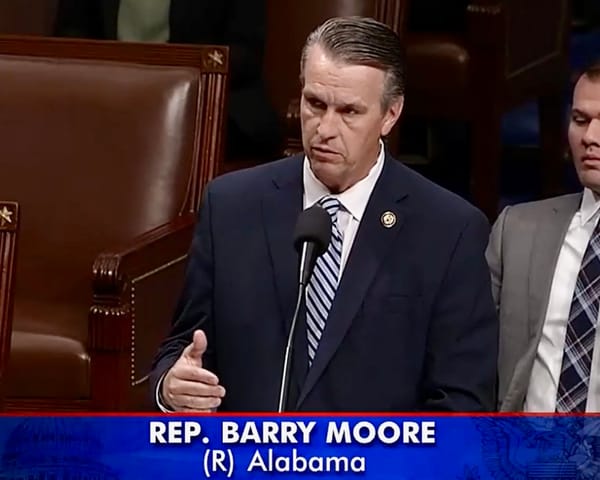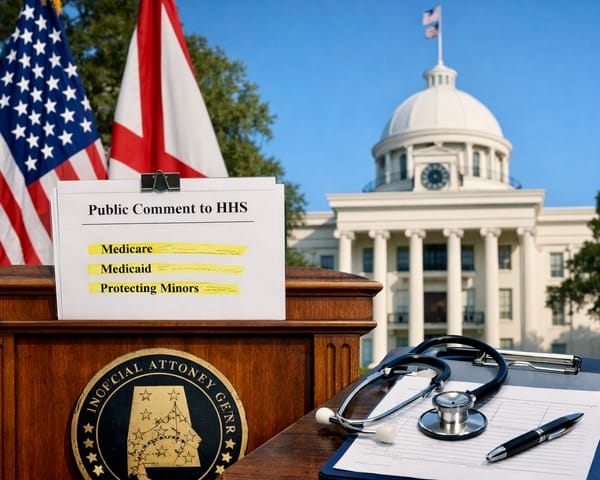Alabama Joins 17‑State Coalition Supporting South Carolina's Classroom Content Law
Law bans the teaching of destructive, divisive radical ideologies

Alabama Attorney General Steve Marshall recently joined with a 17‑State coalition in support of South Carolina’s new law barring public schools from teaching “racially or sexually divisive ideologies.” The coalition filed a joint amicus brief in a federal lawsuit challenging the law.
“Public schools are funded by the public to serve the public’s interest. But as elected officials in Alabama, South Carolina, and elsewhere have recognized, many of these schools have been using taxpayer dollars to indoctrinate children in divisive and destructive radical ideologies. States have the constitutional authority to put a stop to that sort of indoctrination,” Marshall said in a statement.
The lawsuit was brought by the South Carolina NAACP, two authors, a teacher, and several students. They contend that the law violates their First Amendment rights. In opposing them, Marshall and the coalition argue that sSate leaders—not courts—must decide educational content.
The South Carolina law at the center of the case—Proviso 1.105, part of the State’s 2021–2022 budget—bans public schools from teaching concepts that suggest individuals are inherently racist, sexist, or oppressive based on their race or sex. It also bans materials that promote guilt or responsibility for past actions committed by others of the same race or sex.
Supporters argue the law is a necessary safeguard against political activism in classrooms. Critics, including educators and civil rights groups, say it chills open discussion and disproportionately targets lessons on race, gender, and American history.
In their brief, the Attorneys General assert that choosing and arranging school materials is government speech, which does not infringe any individual’s free speech rights. They write:
“A citizen’s right to receive information under the First Amendment is not a right to compel or extract information from the government at the taxpayers’ expense. Accordingly, there is no First Amendment right to compel state‑funded schools to implement certain course curricula or require public school libraries to stock their bookshelves with inflammatory and prejudicial materials.”
They clarify that the law does not block access to contested materials entirely—it merely prevents their use in schools funded by taxpayers. The brief urges the court to deny a preliminary injunction and dismiss the case, arguing the plaintiffs are unlikely to prevail on First Amendment grounds.
The AG’s contention that curriculum choices should be classified as government speech not only avoids triggering free speech concerns, but also aligns with the recent Fifth Circuit Court of Appeals decision in Little v Llano County—a decision with which ALPolitics.com readers are familiar.
Joining Marshall in the brief are the Attorneys General of Florida, Georgia, Idaho, Indiana, Iowa, Kansas, Louisiana, Missouri, Montana, Nebraska, Oklahoma, South Dakota, Texas, Utah and West Virginia.
The full brief can be read HERE.




